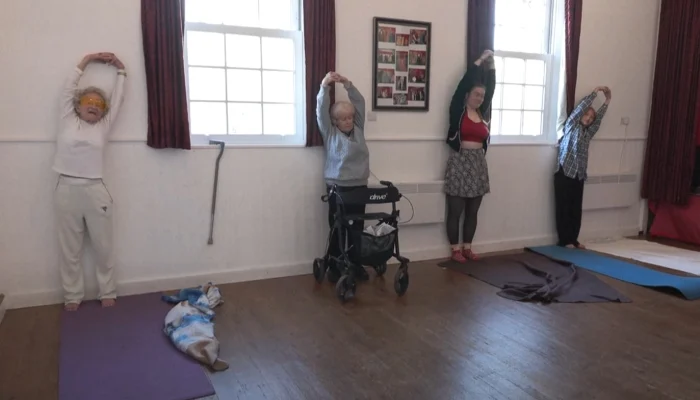HARLOW, United Kingdom: Centenarian Dorothea Barron vividly remembers the wave of relief that washed over her when she learned World War II had finally ended.
“Thank goodness that’s over,” the British Navy veteran recalls thinking at the time.
Eighty years later, the remarkably sprightly 100-year-old — who now teaches yoga and celebrated her milestone birthday with an exhilarating flight in a Spitfire fighter plane — stands among a dwindling number of veterans with firsthand recollections of the war.
The precise number of surviving WWII servicepeople in the UK remains unknown.
While experts estimate there are still several thousand, the 80th anniversary of Victory in Europe Day, commemorated on May 8th, will likely be among the last major British wartime commemorations with a significant veteran presence.
As Britain marked the anniversary with four days of celebrations commencing on Monday — including military parades, flypasts, and lively street parties — Barron shared with AFP her profound feeling upon hearing that the war which had cast a long shadow over her teenage years was finally over.
The news arrived as “a release, a tremendous weight off your shoulders.”
However, it also marked an abrupt transition for members of the armed forces.
“It was ‘keep the uniform, here are a few clothing coupons, a few food coupons, go home.’ And that was all,” Barron recounted.
At the age of 20, she did not foresee the hardships of life in post-war Britain. It was a “terribly difficult” period, Barron explained.
“I won’t say unhappy, but there were uncertain times. You never knew what was going to hit you the next day.”
‘Can you feel it?’
Speaking from her home near Harlow, north of London, Barron recounted the years of post-war reconstruction with extraordinary vitality.
She has been teaching yoga for an impressive 60 years, and every Monday she still leads a class close to her home.
Her remarkable flexibility — demonstrated by her perfect downward dog pose, with heels firmly on the floor and back impeccably flat — continues to impress even her younger students.
“Can you feel it in the back of your legs?” she inquired during a recent class.
“If you want firm boobs, that’s the pose,” she playfully told her dozen or so students, ranging in age from 20 to 95, unfazed by their groans of exertion.
“I feel lovely, relaxed and stretched,” she said contentedly as she walked home afterwards.
Spitfire flight
Barron celebrated her momentous 100th birthday in October 2024 with a thrilling flight in a Spitfire, a Royal Air Force aircraft that played a pivotal role in the Battle of Britain against the German Luftwaffe in 1940.
“It really was so wonderfully exciting,” she said, beaming with delight.
With her vibrant energy today, it is easy to envision Barron’s determination as an 18-year-old.
She “desperately” wanted to join the Women’s Royal Naval Service, or Wrens, as they were commonly known.
“We weren’t going to have the Nazis taking over our country,” she stated firmly.
However, Barron feared she was too short to meet the recruitment requirements.
“I cheated like mad and cut out cardboard heels to make me look taller, and I built my hair up, puffed it up,” she confessed.
“I was only five foot two inches (157 centimetres), but I think they saw I was so keen to become a Wren that they thought ‘we’ll let her through’.”
During her service, Barron taught troops how to communicate using visual signals and Morse code.
And in the lead-up to the D-Day Normandy landings, she played a part in testing the portable Mulberry harbours, which were towed across the English Channel and were crucial in enabling large numbers of troops and vehicles to reach France.
However, she did not know the purpose of these structures at the time and only later realized their significant deployment.
“I was rather delighted,” she recalled. “I thought: ‘Oh, I did do something useful then’.”
She planned to commemorate Victory in Europe Day in the Netherlands for Dutch Liberation Day before attending a service at Westminster Abbey on May 8th, which will also be attended by members of the British royal family.
During the war, Barron met her husband Andrew, who served in the Royal Air Force.
They went on to have two daughters, and Barron is now a proud great-grandmother. Andrew sadly passed away in 2021, and Barron still speaks of him with deep affection.
While it takes a great deal to dampen Barron’s cheerful spirit, she is concerned about current global events — particularly Russia’s invasion of Ukraine, which has tragically brought conflict back to Europe.
“Nobody wins a war,” she said with a somber tone.



